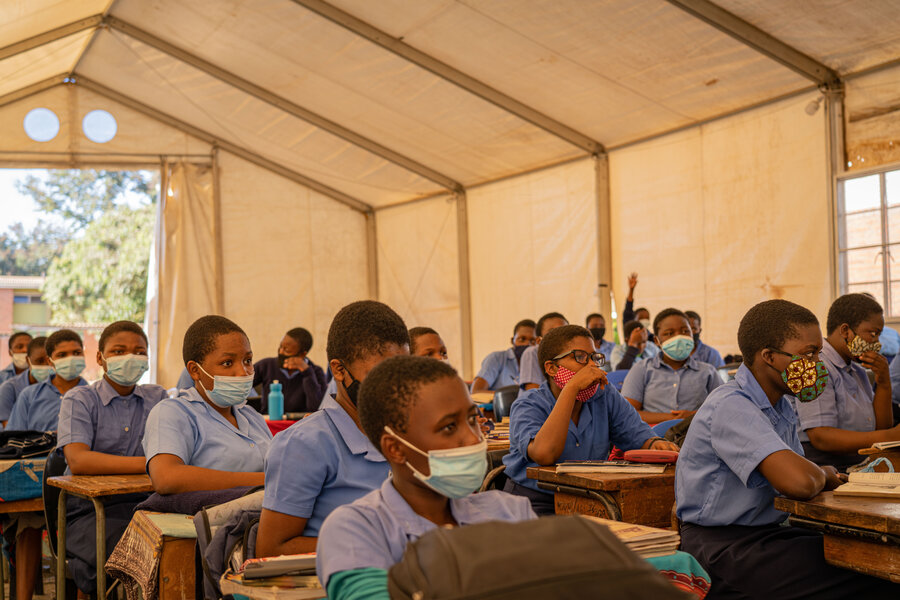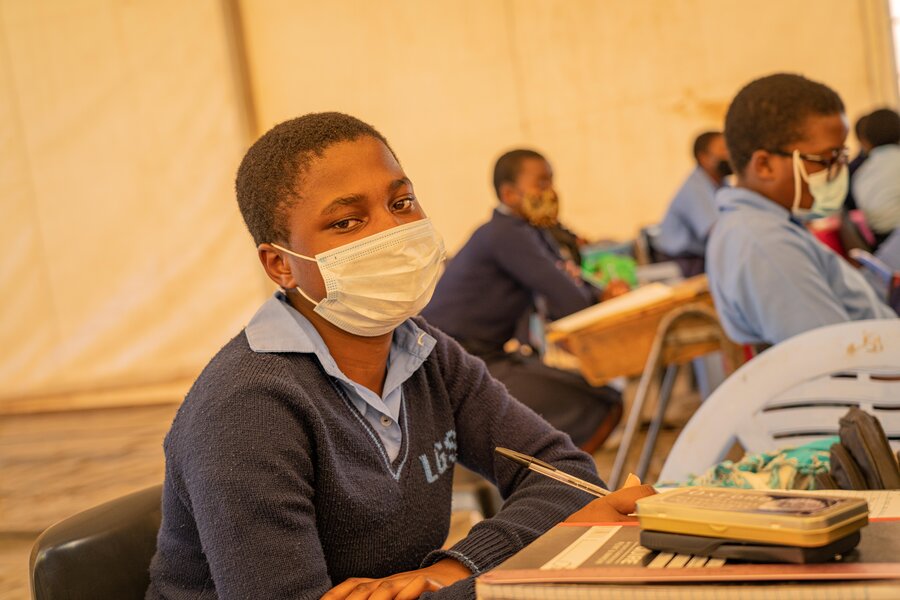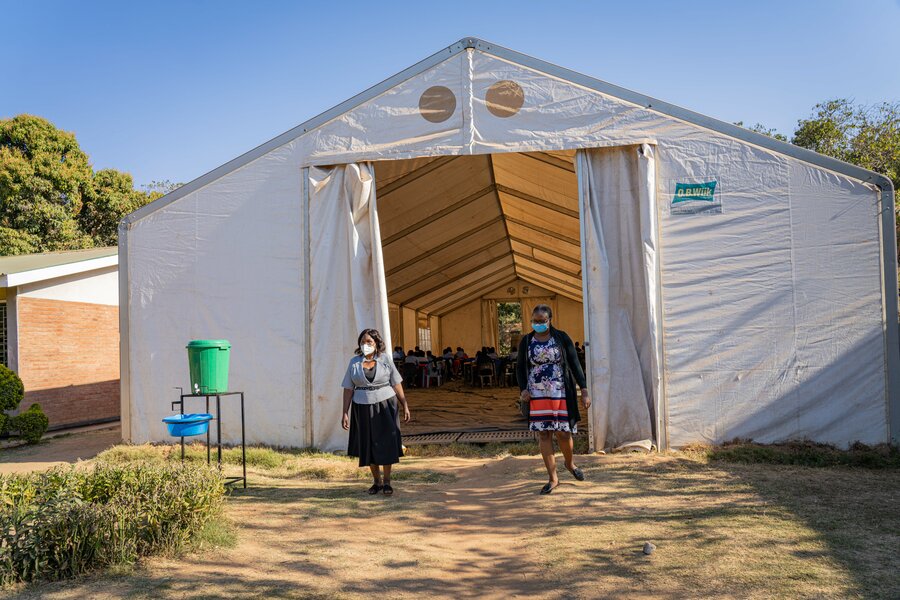How WFP helped a girls’ school to tame COVID-19

“I really prefer learning in the big tents – we effectively observe social distancing because they are spacious. Everyone here likes learning in the tents,” says Nellie Paundi, a form 3 student at Lilongwe Girls Secondary School in Malawi’s capital city. “The tents also have good ventilation. When it is hot, we open the windows. It’s comfortable in here,”
Nellie was among over 300 students who tested positive for COVID-19 when the pandemic hit the school hard in January 2021.

“When I was told the result, I felt terrible. I couldn’t even think of my books but my life and how to survive,” Nellie says. “Thankfully, we received a lot of social, psychological and material support to cope with the situation. We all got healed.”
It all started in January, when some students developed symptoms. The school immediately called Bwaila Hospital COVID-19 Treatment Centre. Samples were collected from 17 sick students, and 16 tested positive. This was followed by mass testing, where 300 out of 605 students tested positive.
Headmistress Emily Mkokamasa attributed the rapid spread of infections to congestion in classrooms and hostels. The Ministry of Education reached out to the United Nations World Food Programme (WFP) for support, who provided three Mobile Storage Units. These large tents were used initially as isolation space, and later converted into classrooms.
“The 300 learners recovered within two weeks,” says Mkokamasa. “Each tent accommodates 70 learners seated a metre apart. Thus the three tents have increased the learning space by one third..”

All COVID-19 precautionary measures and guidelines are reinforced at the school to avoid any repeat of earlier in the year. “We can’t imagine a repeat of the psychological torture we suffered in January. We are therefore reinforcing all guidelines to prevent coronavirus infections in the wake of the third wave,” adds Mkokamasa.
Apart from assisting Lilongwe Girls Secondary School, WFP supports the Government with a wide range of services to the humanitarian community, including setting up COVID-19 screening areas at the airports and isolation spaces in hospitals and refugee camps. In total, 40 Mobile Storage Units have been set up for COVID-19 health screening, isolation and treatment. WFP counts on the generous support of development partners for its support to the COVID-19 response, particularly the governments of Iceland and Canada through a UN pooled fund.
WFP has also worked with the Government to provide take-home rations in the form of food and cash, during the COVID-19 pandemic, so that 600,000 vulnerable children were able receive meals at home when schools were closed.
